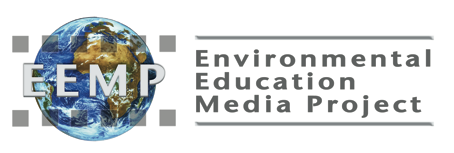The Visual Ecological Database (VEDA) will be an educational knowledge portal of broadcast quality visual materials targeted at the academic community, development professionals and the general public. It centres around Best Practice examples on how to restore ecosystems that have been damaged or destroyed. A comprehensive display of landscapes from around the world will help sharpen the user’s eye to detect different degradation types on a landscape-scale. At the same time it will provide evidence of well-designed sites that hold the visual-proof that more resilient future-landscapes can become widespread reality.
VEDA will be a unique, first-of-its-kind archive of edited clips sourced from more than 1,000 hours of HD-footage shot by John D. Liu and his team over the past 20 years. From freshwater wetlands to mountain grasslands, from subtropical broadleaf forests to the artic tundra, the database will include a globe-spanning variety of biomes that have been impacted by humans. Only when witnessing and truly recognizing dysfunction are we able to actively envision ecologically sound systems that are worth being restored. VEDA will raise awareness and present methods on how to bring improved resilience and greater functionality on a landscape-scale. Best practice examples range from farmland management with rotational grazing in Australia, to productive perennial food gardens in China, to awarded winning soil conservation methods in Turkey, all the way to wildlife habitat rehabilitation for the last remaining mountain gorillas in Rwanda, and holistic watershed management for North American megacities.
Visual animations and hyperlinked reference materials ranging from scientific analysis to hands-on manuals will enable different user groups to comprehensively understand and further communicate the restoration lessons from VEDA. The complete web-based portal will also incorporate downloads of all educational clips for further private use or dissemination in educational institutions such as universities or schools.
The continuous addition of new clips and consistent archive updating from the latest findings on restoration initiatives across the globe will enable dynamic growth. Formal partnerships for additional content provision, revision, and evaluation have been establish with a number of Universities (Amsterdam, Bremen, Peking, Uppsala, Wageningen) as well as development institutions and organizations specialized in ecosystem restoration (IUCN, UNCCD, UNEP, SER & WOCAT). An editorial board, composed of scientists, lay people and development experts, will ensure unified content formats as well as help guarantee the highest scientific standards for all uploaded materials. Only after a systematic revision and review of contents will new lessons be added to the online platform.
In VEDA lies the potential to become the earth’s visual memory on ecosystems and biomes that once were and that we have lost within the last 150 years since the onset of the industrial revolution, the demographic explosion and the invention of photography. VEDA will display track record proven techniques of restoration and rehabilitation based on sound science and practical application. These methods and initiatives have transformed landscapes from bareness to functional diversity. VEDA will give a visionary outlook to a future that we are able to restore.








